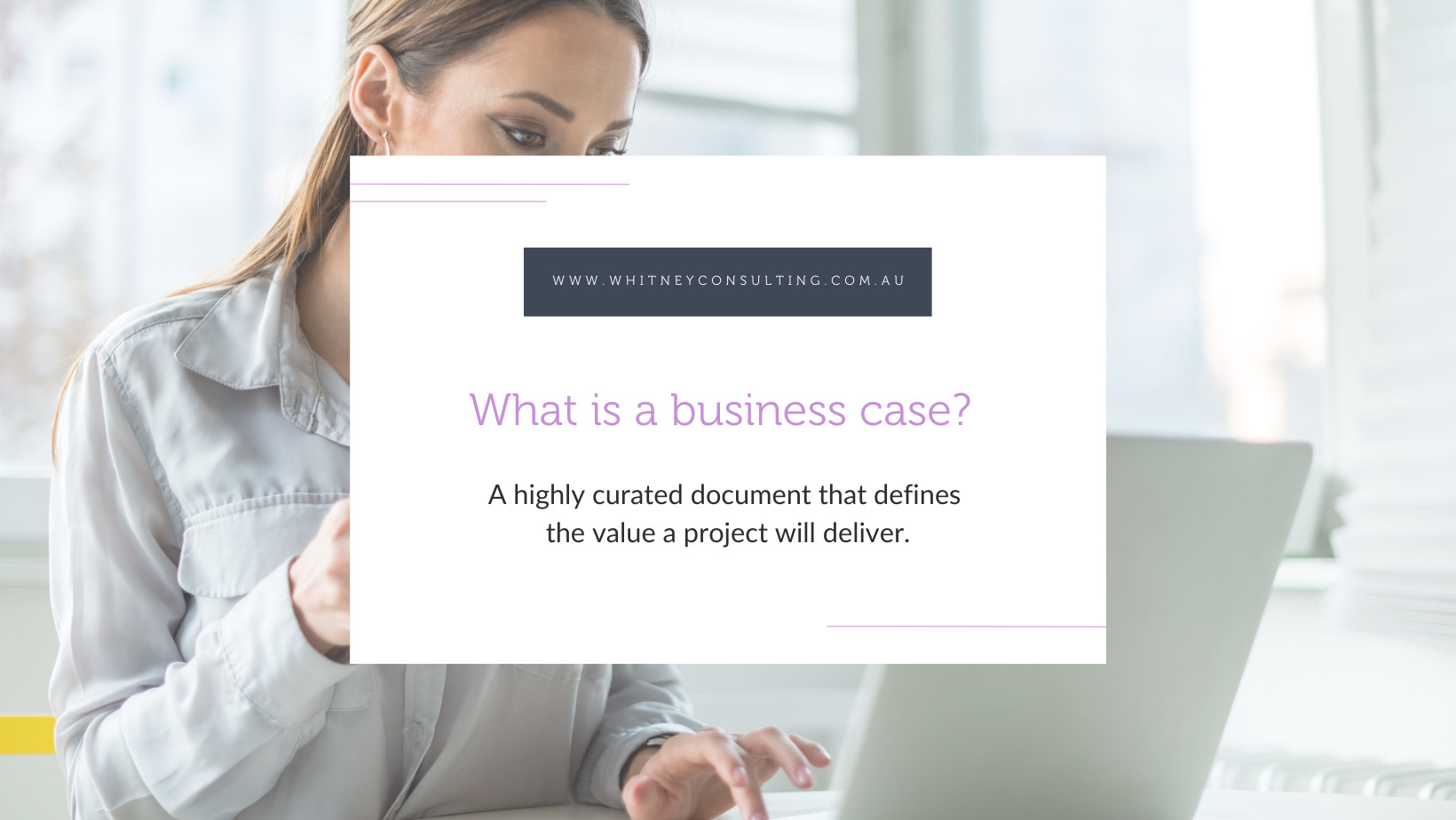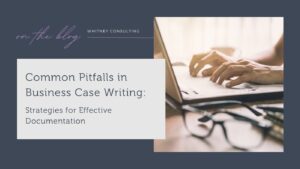Have you heard the term business case and wondered what it is – perhaps whether it is the same as a business plan? Well, nope, it is completely different! Every organisation should have a business plan but not everyone needs a business case.
A business plan sets out the goals, objectives, market details and financial forecasts for the business over a set period. A business case is about just one project or programme that the organisation, or a part of the organisation is planning to deliver.
So what is it?
A business case argues the case for delivering a proposed project or programme. It provides information on why the project is needed, what it will do, how it will do it and what are the expected benefits and outcomes of the project. It looks at the risks of the project, the costs and ongoing implications and compares them to the benefits to determine whether the project is worth doing. It should also look at what other options are available, other than completing the project, and why these options are not preferred.
Why would you need a business case?
Business cases are used to seek either approval or funding to proceed with the project. This can be internal approval/funding from senior management within your organisation or it can be external approvals or funding from government or through a grant programme.
The reason a business case is needed is so that management or the external organisation can assess the feasibility and viability of the project and whether it is worth spending the time and financial resources on. The reason you may want to create a business case is so you can present your argument clearly and avoid the common scenario of the answer being no, due to a lack of information or understanding that would enable the answer to be yes.
What should a business case include?
There are some standard sections that you should include in your business case to enable it to be properly assessed. Some organisations will require additional information, specific to their business but the standard sections include:
Project Purpose/ Need and Demand Analysis
This addresses why your project is needed – is it solving a problem or capitalising on an opportunity. What is the demand for the project?
Background and Project Description
This describes the background to the project and what the project will do.
Policy and Strategic Framework Alignment Assessment
This is where your project is linked to the objectives and strategic direction of the organisation. It helps to explain why this organisation would want to approve the project or invest in it.
Project Deliverables, Project Milestones and other Project Implementation Details
This provides the details of how the project will be delivered. This section covers information such as the outputs and outcomes that will be delivered by the project, the tasks that will be completed, how long they will take, how the project will be managed, the project governance and how procurement will be managed within the project.
Stakeholder and Communication Plan
This section identifies all the key stakeholders, how they have been involved in the project so far, evidences their support for the project and details how they will be communicated with through the delivery of the project.
Cost/Benefit Analysis
This is where the cost to deliver the project is compared to the benefits it will deliver and an argument is made that the benefits will outweigh the costs.
Project Budget and Funding Strategy
The budget for the project, including details of items of expenditure is detailed and evidenced here. It also addresses where the funds for the project are proposed to come from.
Options Assessment
This section looks into what other options were considered to address the identified need, problem or opportunity. The expected costs, benefits and implications of all options should be considered, with the reason for the project being selected as the preferred option being clear.
Assessment of Ongoing Sustainability and Viability
The ongoing operating and management costs /activities and how these will be resourced, as well as any expected income should be detailed here. How the project will be viable in the long term or what funding it will need should be explained.
Risk Management Plan
An explanation of possible risks of the project, how likely they are, what the implications are if they eventuate and how the risk can be mitigated is included in this section. This enables the organisation to ensure that activities are put in place to minimise the chance of these risks occurring.
Evaluation Methodology
The section explains how you will measure the actual outcomes and benefits that result from the project against its objectives.
All claims made in the business case should be evidenced and letters of commitment or support from any stakeholders that are required for the success of the project should be attached.
I hope this helps to clear up what a business case is, when you might need one and what is should include. If you need help with creating a business case, contact Whitney Consulting by emailing me here or booking a call here.






